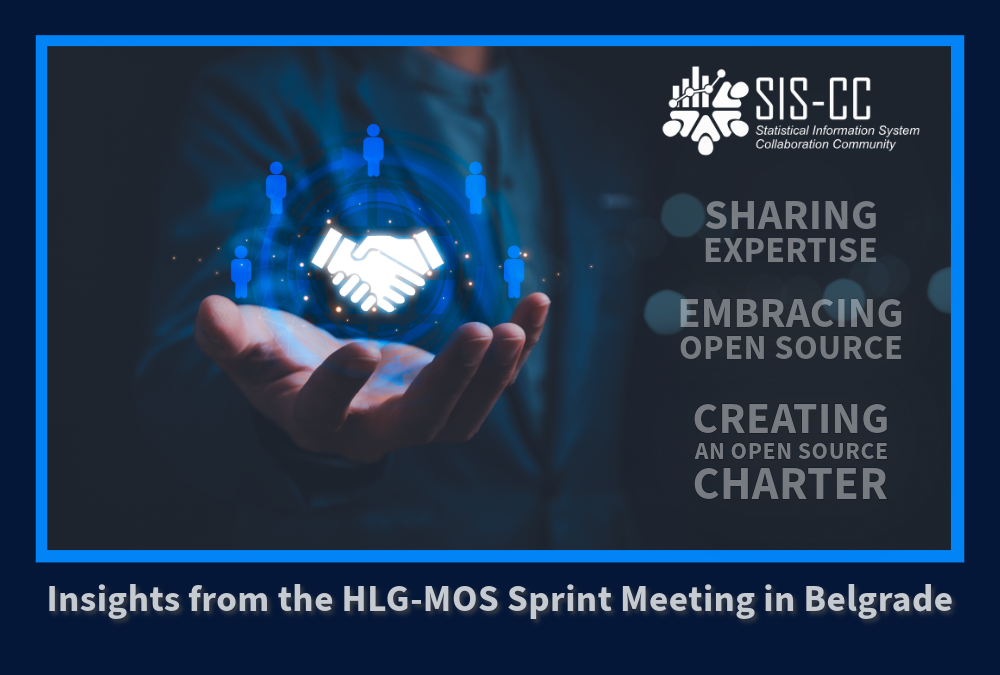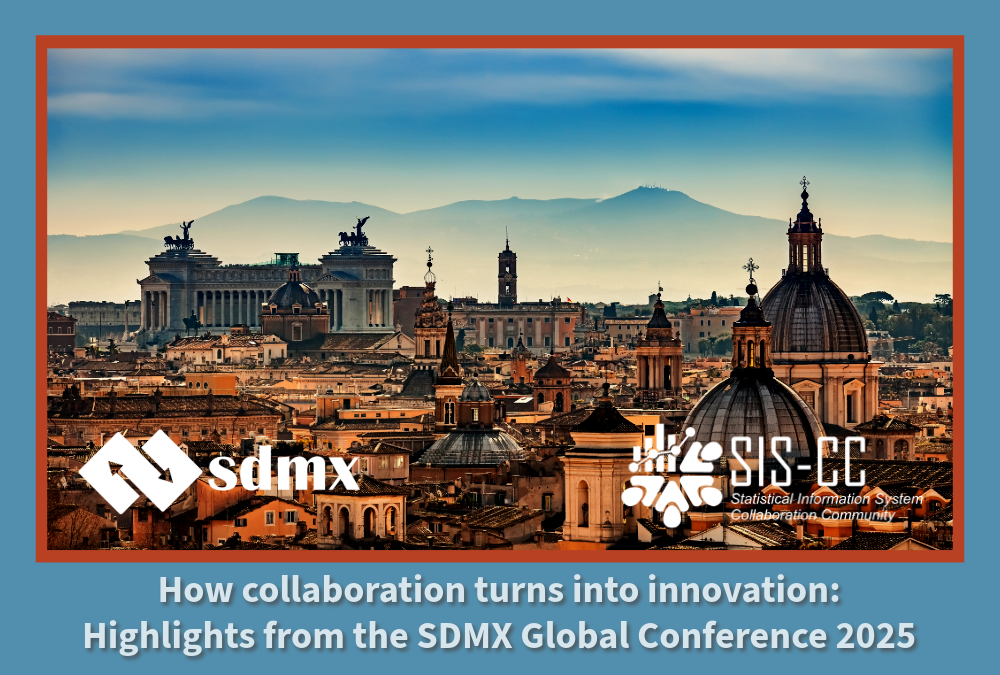By Jonathan Challener, SIS-CC Community Manager, OECD Statistics and Data Directorate
In September 2024, I had the privilege of attending the HLG-MOS open-source project sprint meeting hosted by the Statistical Office of the Republic of Serbia (SORS) in Belgrade. Over three dynamic days, we dove deep into the transformative potential of open-source software within official statistics. The sprint was the culmination of months of virtual meetings, bringing together experts and practitioners from around the world. Our primary goal? To enhance our collective understanding of how open-source solutions can revolutionise official statistics. In an era where data integrity and accessibility are paramount, this meeting was a timely reminder of the power of collaboration.

Key Learnings from the Workshop
- The shift to open source: As we explored the open-source landscape, it became clear that many statistical offices are at a crossroads. The traditional advantages of proprietary software are diminishing, with major vendors shifting towards cloud-based services. This evolution opens the door for statistical offices to reassess their software strategies and embrace more flexible, community-driven solutions.
- The importance of licensing: One of the pivotal discussions revolved around the complexities of open-source licensing. We weighed the merits of various licenses, including the European Public License (EUPL), which offers multilingual support and compliance with European standards, versus the permissive approach of the MIT license. The right license can significantly impact project contributions and collaborative efforts, making this a vital consideration for any organisation embarking on an open-source journey.
- Building a supportive community: Community engagement emerged as a cornerstone for successful open-source adoption. The participants shared inspiring examples of how collective experiences can help overcome challenges and foster innovation. Initiatives like the Awesome List, a collaborative repository of open-source tools for official statistics, exemplify how sharing resources can benefit the entire community.
Sharing our expertise: The SIS-CC Journey
I had the opportunity to present the SIS-CC use case, illustrating its evolution from a small and loosely connected group of organisations into a vibrant network of members and partners spanning multiple continents. This journey underscores the importance of collaboration and resource sharing in the open-source realm. The SIS-CC was seen as the gold star open-source reference project that can serve as a basis for others embarking on similar journeys. Our discussions highlighted how open-source projects can avoid issues such as vendor lock-in and a shift of focus away from specialised markets, which have reduced the availability of tailored solutions for specific fields like statistical offices. The shift to open-source can enhance interoperability, ultimately leading to more sustainable practices in official statistics.
A call to action: Creating an Open Source Charter
As the sprint progressed, we recognised the need for structured guidance in transitioning to open-source platforms. This led to the decision to create an “Open Source Charter.” This document will outline key principles and provide guidelines for National Statistical Offices (NSOs), ensuring they have the knowledge necessary for a successful transition. Moreover, we proposed developing a mini website to host this charter along with additional resources, making it accessible to a wide audience. This collaborative effort aims to foster a culture of openness and innovation within the official statistics community. Indeed, the meeting in Belgrade was more than just a series of discussions; it was a rallying point for those passionate about advancing the field of official statistics through open-source solutions. As we move forward, it’s essential for statistical offices worldwide to embrace this shift, not only for their own benefit but for the greater good of data integrity and accessibility. In a world where data-driven decision-making is critical, the potential of open-source software in official statistics is vast. By working together, sharing insights, and fostering a collaborative spirit, we can pave the way for a more open and inclusive future in official statistics. Stay tuned for further developments from this initiative, and let’s continue to champion the power of open-source in our field!
The High-Level Group for the Modernisation of Official Statistics (HLG-MOS) was established by the Conference of European Statisticians to advance the modernisation of official statistics. It consists of Chief Statisticians of thirteen national and international organisations (Chaired by Canada) who set the vision, mission and priority topics in the field. The HLG-MOS provides a collaborative platform for experts in statistics organisations to develop strategies and solutions in a flexible and agile way. It has made several important contributions to the modernisation of official statistics such as the Generic Statistical Business Process Model (GSBPM) and the Generic Statistical Information Model (GSIM). For more information about HLG-MOS and its works, please visit the webpage.


